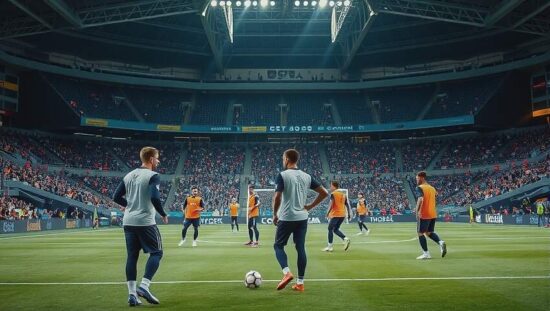A Symbol of Stability Amidst Bochum’s Uncertain Future
The unexpected contract extension of striker Philipp Hofmann to 2028 has become a focal point of discussion surrounding VfL Bochum, raising questions about the club’s long-term strategy and the pressure building within the organization. While lauded as a demonstration of loyalty and a vital contribution to team cohesion, the move, announced this week, also serves as a tacit acknowledgment of the challenges facing the club.
Hofmann, a cornerstone of Bochum’s attacking line since 2022, has provided a consistent presence, amassing 31 scorer points across 110 appearances. Club CEO Ilja Kaenzig’s effusive praise – emphasizing Hofmann’s leadership both on and off the pitch – has been interpreted by some analysts as a deliberate attempt to project an image of strength and stability at a time when the club faces considerable scrutiny.
Bochum’s recent performance has been inconsistent, flirting dangerously close to relegation and the pressure to deliver results is mounting. The extended contract for Hofmann, a respected figure within the dressing room and a pivotal member of the team council, potentially signals a prioritizing of experienced leadership over potentially disruptive rejuvenation. This choice risks solidifying a team structure that may struggle to adapt to evolving tactical demands and the dynamism of younger talent.
Furthermore, the significant commitment to a player in his early thirties, while demonstrating confidence in his abilities, raises considerations around the club’s financial flexibility. Resources tied to Hofmann’s salary could potentially be allocated to acquiring younger, more versatile players who perhaps offer a wider range of tactical options.
While Hofmann’s personal connection to the city and his evident enjoyment of playing for Bochum are undoubtedly positive factors – as highlighted in his statement – the circumstances surrounding his extended contract compel a more critical evaluation. It’s a tangible sign of Bochum’s current predicament: a club clinging to established pillars in the hopes of weathering a turbulent period, but potentially at the expense of future innovation and sustained competitive advantage. The decision underscores the complex interplay between player loyalty, performance targets and the long-term vision for a club battling for survival in a fiercely competitive league.





